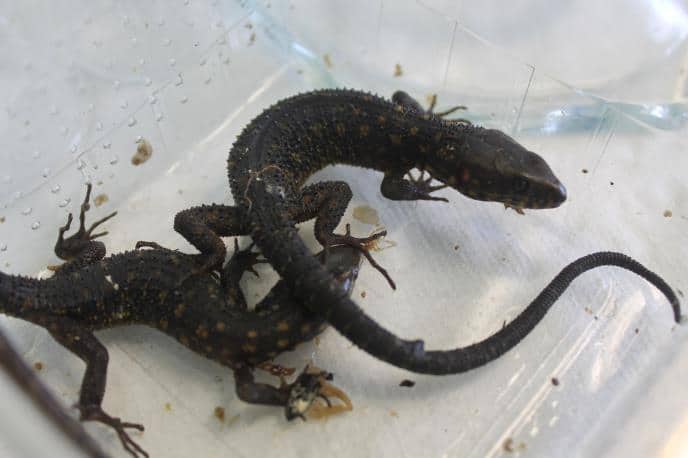Tourist Maciej Oskroba headed back to his home country of Germany on Thursday just nine days after being caught red-handed with more than 400 live animals in his luggage at the Juan Santamaría International Airport outside of San José.
On Sept. 9, security officers noticed Oskroba, 31, repeatedly adjusting his bag while in the airport and ordered his luggage searched after he checked in. They discovered 184 frogs, 42 lizards, nine snakes and 203 tadpoles stuffed into plastic takeout containers. Many of the animals already were dead by the time police intervened, and others had to be euthanized. The creatures that made it out alive were donated to the University of Costa Rica where they will be used for research.
According to Carlos Víquez, the head of airport security at Juan Santamaría, this was the largest wildlife seizure in at least 20 years. The Costa Rican penal code demands hefty fines or up to three years in prison for people convicted of wildlife trafficking. But despite the case’s severity, Oskroba was released without a fine and served no jail time except for the brief period he spent in detention awaiting trial and deportation.
The explanation for the judicial slap on the wrist involves rules for cases processed by flagrancy courts, which heard Oskroba’s case because he was caught in the act and with the animals in his possession. In flagrancy cases involving maximum sentences of three years or less in prison, defendants can plead guilty in exchange for one year of probation. If the defendant is arrested again within a year, both sentences are applied. In Oskroba’s case, he even wouldn’t have been deported except that his tourist visa had expired.
“These cases are very rare,” said Edwin Retana, a prosecutor with the Alajuela Flagrancy Court. “But most similar cases would turn out exactly the same way.”
Risking few legal consequences, animal traffickers have much to gain. Oskroba’s menagerie of animals would have been worth thousands of euros on the European pet market. His boa constrictor alone could have fetched as much as €234 ($300), according to online reptile shops.
But despite the potential payoff, few seem to risk trafficking animals from Costa Rica. In the last 20 years, Víquez said only four arrests have been made at Juan Santamaría, and none at Daniel Oduber International Airport in Liberia, the provincial capital of Guanacaste. While bird traffickers are sometimes apprehended at land borders, animal trafficking is not considered common.
“We don’t see it that often,” said Rafael Gutiérrez, from Costa Rica’s National Park Service. “But then again, maybe people just don’t get caught.”






